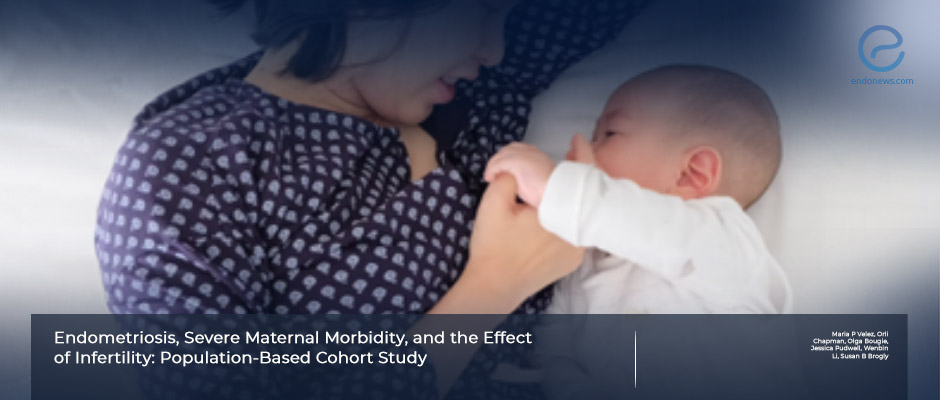The most influential adverse effects of endometriosis
Aug 15, 2024
Unresolved phenomena in endometriosis : Maternal morbidity and infertilty
Key Points
Highlights :
- Severe maternal morbidity consists of life-threatening maladies that exist within 6 weeks of gestation.
- Endometriosis has components of chronic inflammation, fibrosis, and aberrant angiogenesis, all of which may interfere with pregnancy.
Importance:
- Recent evidence suggests that endometriosis could be associated with hypertensive disorders of pregnancy, preterm birth, placental disorders, cesarean delivery, and fetal demise.
What's done here :
- This is a population-based cohort study dealing with all singleton live/stillborn births in Ontario, Canada between October 2006 to February 2014.
Main key feature :
- Severe maternal morbidity in women with endometriosis seems to be related to be due to endometriosis itself and not to infertility or related treatments.
Limitations of this research :
- The inability to ascertain the endometriosis stage and prior treatment is a major limitation.
- The data presented here are more than 10 years old and diagnostic modalities of endometriosis have improved since then, which may result in earlier diagnosis of endometriosis.
Lay Summary
Academicians from the Queen’s University, Ontario Canada led by Dr. Velez published their population-based cohort study related to pregnancy complications in a recent issue of the Journal of Obstetrics and Gynaecology Canada. This population-based cohort study analyzed the association between endometriosis and severe maternal morbidity, and possible effects of infertility and fertility treatment in this regard. Severe maternal morbidity consists of life-threatening conditions occurring during the first 42 days (or within 6 weeks) of gestation. As it is well accepted, endometriosis has pathogenetic pillars of chronic inflammation, fibrosis, and aberrant angiogenesis, that could be interfering with pregnancy.
The authors have made a population-based cohort research consisting of all singleton live/stillborn births in Ontario, Canada with date of confinement from October 2006 to February 2014. There was a total of 787 449 singleton pregnancies and 19 099 (2.4%) pregnancies had an endometriosis diagnosis beforehand. The mean age at diagnosis was 26.6 years, with a mean time from diagnosis to the index pregnancy of 5.6 years.
Severe maternal morbidity was found in 29.0 per 1000 deliveries among women with endometriosis, in contrast to 18.2 per 1000 deliveries among those without endometriosis. Specific components of severe maternal morbidity among women with endometriosis were puerperal sepsis (7.1 vs. 4.0 per 1000 deliveries); postpartum hemorrhage with transfusion, procedures to the uterus or hysterectomy (6.8 vs. 4.5 per 1000 deliveries); maternal intensive care unit admission (4.2 vs. 3.1 per 1000 deliveries); cesarean hysterectomy, hysterectomy via open surgery (3.7 vs. 1.4 per 1000 deliveries); and cardiomyopathy, cardiac arrest and resuscitation, myocardial infarction, pulmonary edema and heart failure (2.1 vs. 1.1 per 1000 deliveries).
The two limitations are the inability to ascertain the endometriosis stage and prior treatments is a major limitation and the data presented here are more than 10 years old and diagnostic modalities have improved. The authors conclude that even though the overall risk is low (29.0 per 1000 deliveries), endometriosis should be regarded as yielding an increased risk of SMM. SMM in women with endometriosis seems to be related to the disease itself and not to infertility or specific treatments.
Research Source: https://pubmed.ncbi.nlm.nih.gov/38866202/
infertility endometriosis maternal morbidity population based cohort

